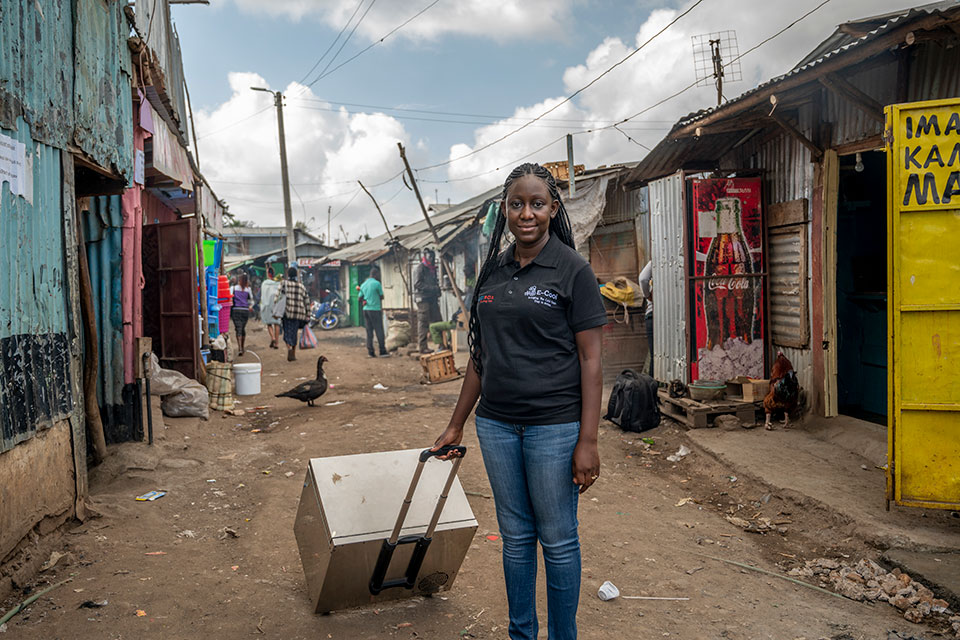![]() I grew up in a society that did not value women. Our rights to education, expression and sometimes even basic needs were considered unimportant and trivial. I grew up with books and other education materials that showed women with babies on their backs and toiling in a kitchen, while the men carried briefcases to work, or were wearing a graduation gown. This visual representation [signaled] where women and men belonged.
I grew up in a society that did not value women. Our rights to education, expression and sometimes even basic needs were considered unimportant and trivial. I grew up with books and other education materials that showed women with babies on their backs and toiling in a kitchen, while the men carried briefcases to work, or were wearing a graduation gown. This visual representation [signaled] where women and men belonged.
Education opened my eyes to the injustices that women and girls face. I noticed that more girls were dropping out of school as the education level rose. They were either trapped by domestic responsibilities and other challenges caused by interrupted learning. My undergraduate class of Mechanical Engineering had one female student to every 10 male students. This means less women are getting into STEM fields and translates to their underrepresentation in technical professional fields.
This is why I advocate for women’s rights and representation, specifically in STEM. Providing equitable access to opportunities such as education, energy, and basic needs is a holistic way of tackling a spectrum of challenges addressed by the Sustainable Development Goals.
As the founder and CEO of Drop Access, a women- and youth-led social enterprise that develops practical and affordable energy solutions, I steered my organization to innovate VacciBox. It’s a portable solar-powered refrigerator that is easily mounted on a bicycle, motorbike, or even carried, so that medical supplies as well as foods can be safely stored and transported to communities that have been affected by climate hazards.
Women are the most afflicted by climate calamities and hence deliberate measures should be taken to ensure that climate mitigation directly targets women and includes their participation. This should be beyond high-level discussions and engagements and trickle down to practical and affordable measures that even a small-scale woman farmer can comprehend and practice
Women-led actions need to be sufficiently and equitably funded to achieve a just, green transition. Recognize, applaud, publish and cheer on the brave women who have constantly advocated and promoted equitable, gender-focused and just climate action measures. This move not only ensures that women already in STEM are retained but also encourages more women and girls to opt for STEM related fields.”
Norah Magero is a Mechanical Engineer and a Renewable Energy Expert with experience in the design and management of off-grid energy technologies. Her work and advocacy relate closely to the Sustainable Development Goals, particularly SDG 5 on gender equality, and SDG 13 on taking urgent action to combat climate change and its impacts. In Kenya, UN Women is supporting initiatives to award and encourage young women to help bridge the gender gap and enhance innovation in business.
